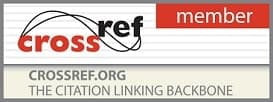
Printed Journal | Refereed Journal | Peer Reviewed Journal
2020, Vol. 2, Issue 1, Part A
Knowledge, practice and barriers of exclusive breastfeeding among mothers in East Khasi hills district, Meghalaya, India: A mixed method study
Badondor Shylla, Mebarika Toi, Nochovono Tase, Jodibala Haobijam and Dr. Himashree Bhattacharrya
Introduction: The benefits of Exclusive Breastfeeding are widely recognized, yet worldwide a large number of infants are not exclusively breastfed. WHO recommends Exclusive Breastfeeding for the First 6 months? In India, as per NFHS 4 (2015-16) reports, Exclusive Breastfeeding rate is 54.9%. Meghalaya has a low Exclusive Breastfeeding rate of 35.8% only. Low rate of Exclusive Breastfeeding imply that mothers in this region are constantly facing multiple barriers which limit them to exclusively breastfeed their infants. Understanding these barriers is crucial.
Aim of the study: To assess Knowledge, Practice and Barriers of Exclusive Breastfeeding.
Methodology: A Cross sectional study was conducted in areas under Mawlai Nongkwar UHC which was chosen randomly. The data collection period was 1 month. 181 mothers having children aged less than two years were recruited out of which 15 mothers were chosen purposely for the in-depth interview which aimed at identifying the barriers. Data collected using structured and semi-structured questionnaires.
Results: Out of 181 mothers, 175 mothers have knowledge about duration of Exclusive Breastfeeding (i.e. Six months). The Mean Knowledge score was found to be 13.425 ± 2.1085 and the Median score is 14. Based on the Median score, 126 (69.6%) mothers were found to have adequate knowledge about Exclusive Breastfeeding. The Exclusive Breastfeeding rate found in the study is 44.2%. Majority of the mothers i.e. 56.65% use bottle for feeding and Prelacteal feeding is practiced by 10.5%. Association was found between Exclusive Breastfeeding Practice and Mother’s Occupational status. The common issues that emerged from the qualitative survey regarding barriers to Exclusive Breastfeeding are- Breast milk alone not sufficient to satisfy baby’s hunger, Exclusive Breastfeeding affecting mother’s day to day life, problems encountered during breastfeeding, influenced decision by family members and others, mothers returning to work and baby’s health condition at birth.
Conclusion: The present study shows that although mothers have knowledge about Exclusive Breastfeeding but still they fail to practice due to various barriers. Unless these barriers are addressed, Exclusive Breastfeeding will remain a distant dream.
Pages : 31-35 | 1865 Views | 1064 Downloads
How to cite this article:
Badondor Shylla, Mebarika Toi, Nochovono Tase, Jodibala Haobijam, Dr. Himashree Bhattacharrya. Knowledge, practice and barriers of exclusive breastfeeding among mothers in East Khasi hills district, Meghalaya, India: A mixed method study. Int J Res Paediatric Nurs 2020;2(1):31-35. DOI: 10.33545/26641291.2020.v2.i1a.23
Related Journals
Related Subscriptions
- Nursing Journal Subscription
- Gynecology Journal Subscription
- Gynaecological Nursing Subscription
- Paediatrics Journal Subscription
- Subscription of Nursing Journal
- Midwifery and Nursing Journal Subscription
- Paediatrics Journal Subscription
- Psychiatric Nursing Magazine Subscription
- Surgical Nursing Magazine subscription
Related Links





 Other Journals
Other Journals
